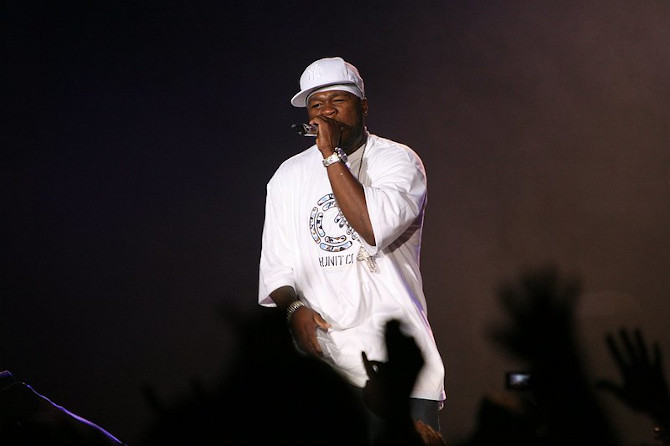Rap Music’s Unexpected Path to Prayer and Faith

“We'll, as rappers . . . as dudes getting money, D'boys, whatever you want to call yourself, we'll take $25,000 to a jeweler, right? Buy a Jesus Piece all diamonded out but won't put $100 in the collection plate.” --Game
Hip Hop's raw depictions of life in crime-ridden communities, the rise to fame and the value of material gain seem to conflict with the traditional religious ideals of love, moral uprightness, self-control and humility. Despite the noted differences, there is an inseparable relationship between hip hop and religion. These street epics situate themselves between the reality of poverty, helplessness, and the unfulfilled American Dream while still holding on to the hope of a greater power having their back in the long run. Rappers are usually stamped with being misogynistic and materialistic. But there is a history of rappers, especially those who fall under the “gangsta” rap genre, who have taken this battle head-on through their music -- from Tupac to DMX, and now Game.
The Game's fifth studio album, Jesus Piece, offers a better understanding of this complex relationship. Not only within the context of this album but the symbolism of the diamond encrusted "Jesus Piece" itself.

The Album
The concept behind Jesus Piece was to bridge the gap between hip hop and religion, particularly Christianity. Behind the heavy features from the hip hop heavyweights of today, the soulful production, and the humorous but enlightening skits from comedian Kevin Hart, Game shines light on the psyche of men from communities like his own in Compton, California and the setbacks of juggling faith, material wealth and social pressures. Before one even listens to the album, the album art may cause for pause or to some teeters on blasphemy.
It depicts a relatively tanner Jesus sporting a red bandanna, which in this context indicates gang affiliation and of course he's wearing a sparkling gold Jesus Piece around his neck. But looking at this in more depth than simply satirizing Christ, it's a clear implication of how Game has merged his “gangsta” rap narrative with his faith. And Jesus did walk with the moral misfits, and in hip hop's case he walks with the gangsters, pimps, ho’s, and drug addicts.
All of the tracks, except for a few, have religious overtones, and Game lyrically paints a picture that coincides with them all. He blesses us with a choir-inspired track “Hallelujah” where in the first verse we see that idea of meekness preached throughout the gospels challenged with glamour when he says, “I wanna live righteous and you know I love Jesus/But can't catch that Holy Ghost in a Prius.” An even more telling example of this inner battle is found within the first verse of “Can't Get Right” where Game says “I smoke weed, pop pills, but I'm thinking it's time for me to chill/Cause I ain't tryin' to go to hell/I'm tryin' to get some head tonight, have a stripper in my bed tonight/But I ain't tryin' to go to hell.”
Falling prey to the ills of society and failing to uphold the precepts of a chosen faith seem to go hand in hand. What isn't understood by many is how rappers and those of the hip hop community can profess faith in the face of the “sinful” actions they partake in. Perhaps, however, by truly understanding the mindset of people in the environments that produce these rappers, one can conclude that they need faith more than anyone.
The Jesus Piece
The significance of this album reaches far beyond the 13 tracks –18 if you bought the deluxe version, it allows us to focus on the value placed upon the Jesus Piece. Rappers spanning from Jay-Z, to Kanye West, Fabolous, Game, and a slew of others have all been seen wearing one or two. As noted by Sarah Godfrey of the Washington Post, “Game’s latest effort sticks to its compelling theme and is an interesting look at the religious gray area that lies between wearing a diamond-studded gold Jesus piece around one’s neck with little thought to its significance and sitting in church every Sunday.”

The significance of the Jesus Piece isn't about sitting in church every Sunday. To many people in these communities, the church doesn't hold the same stature it once did, thereby leaving many to reconcile social pressures and faith alone.
Because of this, the issue of faith is a recurring theme in hip hop. Largely due to the problems faced by low-income communities and the hopes of there being more out there. So it isn't hard to see why the religious stories, particularly the story of Jesus and the promise of the down-trodden becoming triumphant in the end, is something these artists and others like them latch onto. But reality remains, and those who find themselves below the poverty line find it difficult to realize the American Dream. And hip hop takes us through that struggle to attain the promise that both faith and country have made. What the Jesus Piece represents is the flashiness that comes from never having, the declaration of faith, and a marker of financial success – in their crudest forms.
Hip Hop is on the forefront of pop culture around the globe, and unlike much of the commercialized material that either dumbs down or disregards these type of subjects, this album utilized its platform for discussion. In the end, Jesus Piece illustrates the relationship between the spirit and the flesh at its rawest. The “Jesus Piece” symbolizes the overall story: the story of not having but wanting more, serving as a symbol of perseverance, self-indulgence, and faith.
Kevin Hart's outro on Game's track “Freedom” sums up this union and the message most rappers are trying to get across: “But man bottom line what I'm saying is this dude/Be you do you, can't nobody judge you but you/And at the end of the day, if you doing what you supposed to/Then f*ck it man!/ You got one life! Live it!/ With that being said . . . Pray for me.”
Photos: Depositphotos.com






























































































































































































































































































































